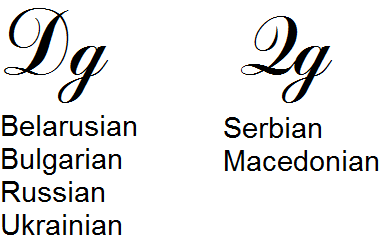I took one class in college and didn't end up really liking Russian - didn't know it was a gendered language beforehand and I really dislike that, mostly because I'm lazy. Before taking the class, Russian cursive seemed absolutely illegible, but I got pretty good at reading and writing it afterwards.
However, I always thought it was weird we were only allowed to write in cursive in the class, where in English or other languages it's more of stylistic option. Our teacher told us everyone wrote like that and it was considered childish to write block letters instead, but she also told us everyone should read Gulag Archipelgo and that Solzhenitsyn was a great author. Was she right about the writing in cursive part though?
(Don't think this is appropriate for language learning since I'm not really asking for the sake of learning the language, so I posted in chat instead)
